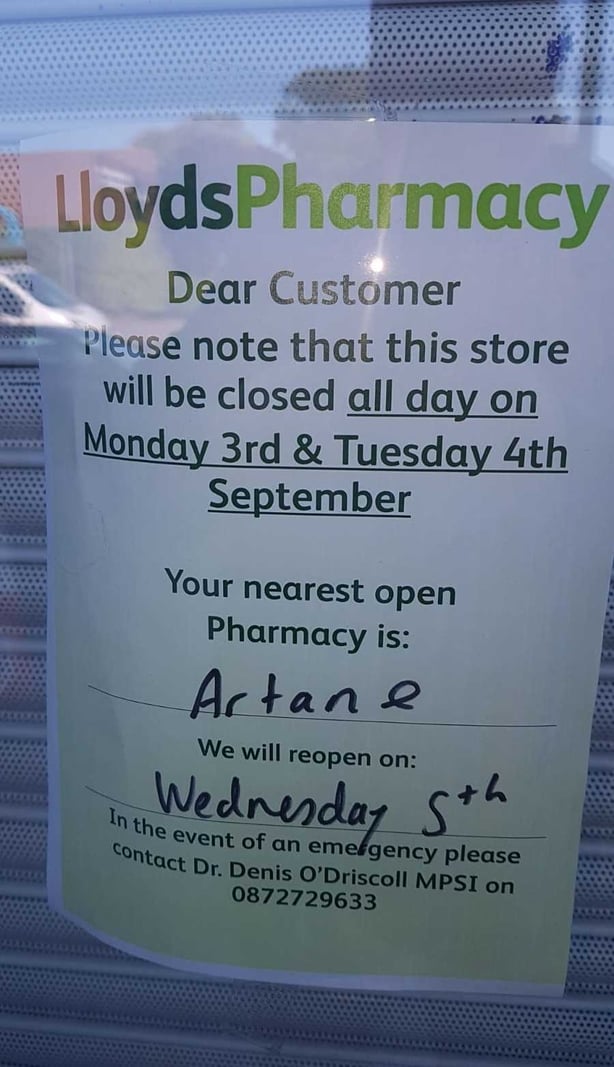Ireland's largest pharmacy chain LloydsPharmacy has been hit by further industrial action in a long-running dispute over union recognition, pay and conditions.
The Mandate trade union, which says it represents 270 of the company's 960 employees around the country, blames the dispute on the company's refusal to negotiate with the union chosen by members to represent them.
However, management argues that it already negotiates with an in-house Colleague Representative Committee, and that the majority of its employees do not wish to be represented by the union.
Nine of LloydsPharmacy's 88 outlets will be closed today and tomorrow, including Tonlegee Road and Coolock in Dublin 5, Killester in Dublin 3, Crumlin in Dublin 12, and in Mullingar.
A further 30 stores, mainly in Dublin, face disruption but not full closure.
Further industrial action is scheduled for tomorrow, for the first three days of October, the first three days of November, and 5 November.

In June, over 30 stores in the chain were hit by a two-hour work stoppage as around 220 staff belonging to Mandate went on strike.
Mandate says it is campaigning for better pay and an end to zero-hour contracts, but LloydsPharmacy denies that it operates such contracts.
Last week, LloydsPharmacy launched a severance package with five weeks pay per year of service capped at €100,000, which is open to all staff except pharmacists.
Mandate Assistant General Secretary Gerry Light described the industrial action as a last resort, and accused LloydsPharmacy management of forcing the workers into striking.
He also accused management of refusing to accept a Labour Court recommendation instructing the company to negotiate with Mandate.
He said the dispute could be resolved if management agreed to meaningful negotiations with the union.
A spokesperson for LloydsPharmacy urged Mandate to cease the industrial action, describing it as reckless and irresponsible.
He noted that a majority of staff had recently accepted a deal negotiated with the Colleague Representative Committee, which had delivered better pay and conditions.
He was unable to state how many job reductions the company is seeking under its voluntary severance programme.
He also pointed out that the Labour Court recommendation on negotiations with Mandate was non-binding.
Mandate says its members' demands include a pay rise with adequate incremental scales, a "sufficient" sick pay scheme, security of hours and the elimination of zero-hour contracts, and improvements in annual leave entitlements and public holiday premiums.







